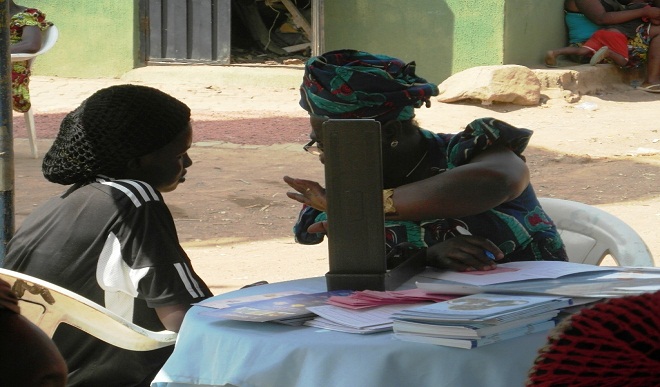Civil society organizations (CSOs) of the Partnership for Advocacy in Child and Family Health has called on the government to support family health in Nigeria in commemoration of World Contraception Day (WCD).
The CSOs of the PAS project said they were pleased to take note of the recent activities of African health professional associations, NGOs and national governments in commemoration of the WCD.
“In Ghana, the Ministry of Health and NGOs in collaboration with UNFPA mobilized around WCD to call for increasing access to accurate information on Family Planning (FP) commodities.
“In Kenya, the Sexual and Reproductive Health Alliance (SRHA) in collaboration with the Ministry of Health, mobilize around WCD 2020 to call for increased awareness of the benefits of modern family methods,” they noted in a statement by the Communications Associate, dRPC/PACFaH@SCALE, Hassan Aliyu Karofi.
The group added that, “in Nigeria, World Contraception Day 2020 comes at a time when the Federal Government of Nigeria and many state governments have signaled their commitment to increase modern family planning services delivery for women and men of reproductive age in the country.
“The 2020-2024 National Family Planning Blueprint of the Family Health Department of the Federal Ministry set out government’s commitments, objectives, and vision for modern FP service delivery in line with the government’s FP 2020 commitments”.
It added that the FG also charged the 2020 National Institute for Policy and Strategic Studies (NIPSS) Senior Executive Course 42 to spend the next year studying and analyzing Nigeria’s Population Growth and Human Capital Development.
“As CSOs in the Partnership for Advocacy in Child and Family Health @ Scale (PAS) project, we are committed to improving child and family health in Nigeria. We believe that access to modern contraceptives gives families a chance to practice healthy timing between births; reduces the risk to the mother; contributes to the survival of living children; and the health of the nation,” the statement added.
However the group noted that, “the Nigerian government committed to a 27% modern contraceptive prevalence by 2020; to date, the rate is only 16.6%. A key reason for our failure to meet this national target is the inadequacy of FP financing. Year after year the Federal and State governments allocate funds in annual budgets for contraceptive procurement; logistics; provider training; and for service provider task shifting and sharing. Year after year funds allocated are either not released, released late, or not in alignment with Costed Implementation Plans.
“In 2019 only 25% of the committed family planning budget was allocated and released by the Federal Government.
“This January 2020 the Federal budgeted 1.2 billion naira for FP. The revised budget of August 2020 preserved this figure.
However, as of September 26th WCD, no funds have been released. This is the same situation in some states. In Kano State, N100,000,000 was allocated for FP in the January 2020 budget. This was reduced to N20,000,000 in the July 2020 revised budget. To date, not one kobo has been released”.
The CSOs called on the government to release the 2020 budgetary allocation for family planning and to apply the same results-based management approaches used in the Covid-19 fight to family planning programming in Nigeria.
World Contraception Day takes place on September 26th every year. The day’s mission is to improve awareness of all contraceptive methods available and enable young people to make informed choices on their sexual and reproductive health.

 Join Daily Trust WhatsApp Community For Quick Access To News and Happenings Around You.
Join Daily Trust WhatsApp Community For Quick Access To News and Happenings Around You.


